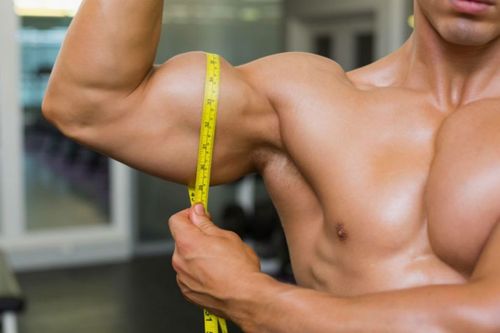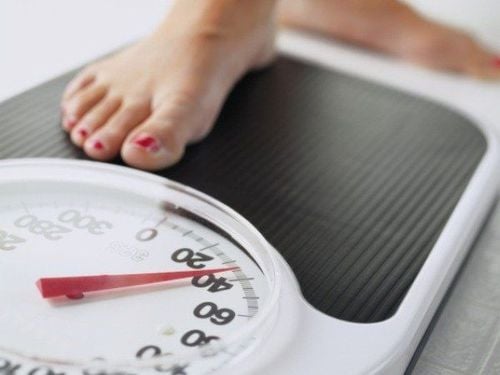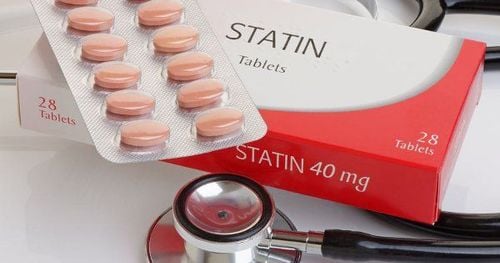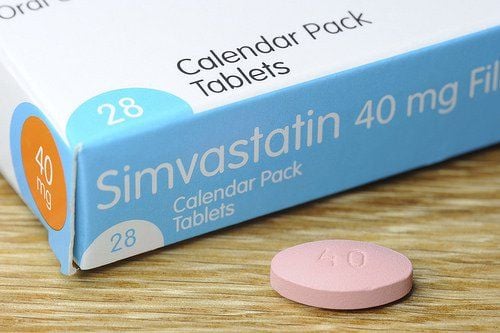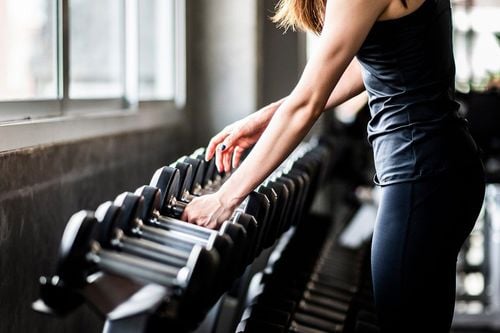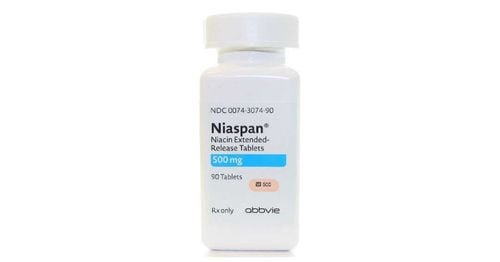This is an automatically translated article.
Both nutrition and physical activity are important if you want to have lean muscle. Protein supplements are the top muscle gainers, but carbs and fats are also essential sources of energy.
1. Eggs
Eggs contain high-quality protein, healthy fats and other important nutrients, like B vitamins and choline. Protein is made up of amino acids, in eggs there is a large amount of the amino acid leucine, which is especially important for muscle gain. In addition, the B vitamins in eggs are also important for many processes in the body, including energy production.
2. Certain types of fish
2.1. Salmon
Salmon is a great choice for muscle building in particular and overall health in general. Each 3-ounce (85g) serving of salmon contains about 17g of protein, almost 2g of omega-3 fatty acids and several important B vitamins. Omega-3 fatty acids play an important role in body health, helping to increase muscle when combined with a professional training regimen.
2.2. Tuna
In addition to 20g of protein per 85g serving, tuna also contains large amounts of vitamin A and several B vitamins (including B12, niacin and B6). These nutrients are important for health, helping to increase energy and exercise performance. In addition, tuna also provides many omega-3 fatty acids, which support muscle health, especially in the elderly. Research has shown that omega-3 fatty acids can slow the decline in strength and muscle loss with age.
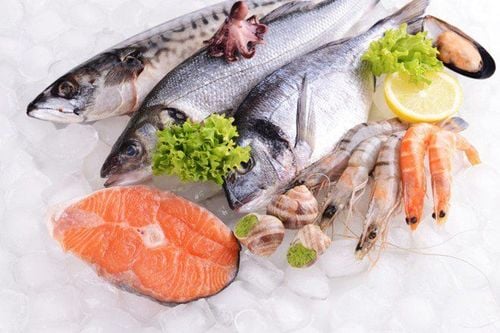
Cá ngừ, cá hồi đều hỗ trợ sức khỏe cơ bắp
2.3. Tilapia
Although it doesn't have as many omega-3 fatty acids as salmon, tilapia is also a good source of protein. An 85g serving of perch provides about 21g of protein, along with good amounts of vitamin B12 and selenium. Vitamin B12 is important for blood cells and nerves, helping you do the exercises you need to build muscle.
3. Meats
3.1. Chicken breast
Chicken breast is considered as a main dish in the muscle gain menu thanks to its high protein content. Each 85g serving of chicken breast has about 26g of high-quality protein. Several studies have shown that a high-protein diet containing chicken may also aid in fat loss.
Many B vitamins niacin and B6 are also found in chicken breast, especially important for people who are active regularly. These vitamins help the body function properly during physical exercise, which is essential for muscle gain.
3.2. Turkey breast
An 85g serving of turkey breast contains about 25g of protein and almost no fat or carbs. Turkey is also a good source of the B vitamin niacin, which helps process fats and carbohydrates in the body. In addition, optimal levels of B vitamins in the body will help you gain muscle over time.
3.3. Lean beef
Beef is rich in high quality protein, B vitamins, minerals and creatine. Several studies have shown that consuming lean red meat, combined with regular weight training, can increase muscle mass.
However, be aware of the high calories in beef. For example, 85g of 70% lean beef contains 228 calories and 15g of fat. Meanwhile, a 95% lean portion of beef with the same weight contains more protein, but only 145 calories and 5g of fat.
3.4. Lean beef jerky
Most of the fat is removed from lean beef jerky during processing, so nearly all of the calories in beef jerky come directly from protein. It's a source of high-quality protein that stimulates muscle growth and is easy to carry and convenient as a snack.
3.5. Pork tenderloin
Pork is widely consumed in many countries. The tenderloin is very lean, provides 18g of protein/85g and is quite low in fat. Some studies show that pork has the same effect as other protein supplements in the muscle gain menu, such as beef and chicken.
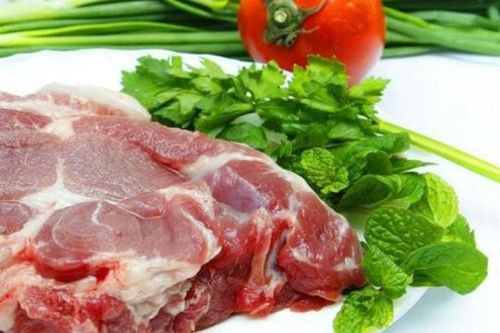
Thịt lợn giúp tăng cơ bắp
4. Dairy products
4.1. Milk
Milk provides a mixture of fast and slow digesting proteins, carbohydrates and fats. As a result, milk is very beneficial for muscle growth. Some studies show that people can increase muscle mass when drinking milk combined with physical exercise.
4.2. Greek Yogurt
Yogurt is not only a high quality protein supplement, but also a blend of 20% whey protein (fast digesting) and 80% casein protein (slow digesting), helping to increase and develop muscle.
However, not all dairy products are the same. For example, Greek yogurt typically contains almost twice as much protein as regular yogurt. While Greek yogurt is a good snack and can be consumed at any time, consuming it after a workout or before bed may provide even more benefits.
4.3. Fresh cheese
One cup (226g) of low-fat cottage cheese contains 28g of protein, including a large amount of the muscle-building amino acid leucine.
Like other dairy products, cottage cheese has different fat content. For example, cream cheese will be higher in fat and calories. Depending on the number of calories you want to add to your muscle gain menu, you can choose the right type of cheese.
5. Seafood
5.1. Shrimp
Each 85g serving of shrimp contains 18g of protein - almost whole, along with 1g of fat and 0 carbs. Like many other animal proteins, shrimp contains large amounts of the amino acid leucine - essential for maximum muscle growth. Shrimp is a simple option to get muscle-building protein, without adding too many calories.
5.2. Scallops
Scallops provide lots of protein with very little fat and calories. Specifically, 85g of scallops contains about 20g of protein and less than 100 calories. This is a good suggestion on what to eat to gain muscle list.
6. Soybean Products
6.1. Soy bean
Half a cup (86g) of cooked soybeans contains 14g of protein, healthy unsaturated fats, and several other vitamins and minerals.
Soybeans are a particularly good source of vitamin K, iron and phosphorus. Iron is responsible for storing and transporting oxygen in the blood and muscles. Iron deficiency can impair these functions. Young women are at high risk of iron deficiency due to blood loss during menstruation.
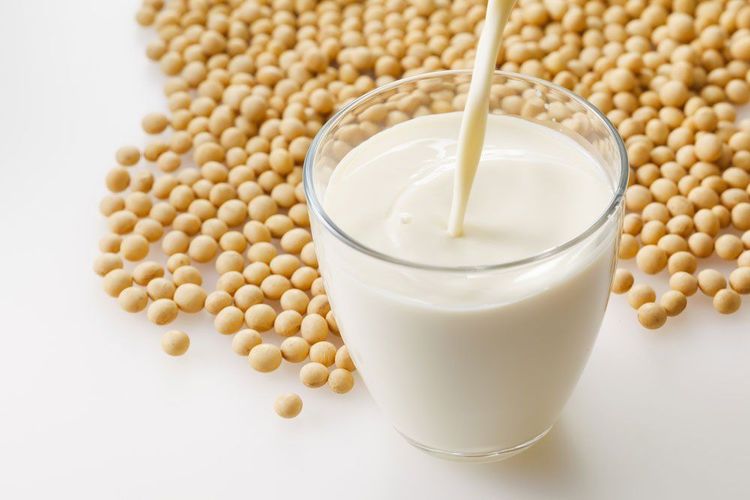
Đậu nành có nhiều vitamin và khoáng chất
6.2. Edamame
Edamame is the term for whole immature soybeans, which are served in many Japanese dishes. One cup (155g) of frozen edamame provides about 17g of protein and 8g of fiber, in addition to high amounts of folate, vitamin K and manganese. In particular, folate helps the body process amino acids, which are important for increasing muscle mass and strength, especially in the elderly.
6.3. Tofu
Tofu is produced from soy milk, often used to replace meat. 124g of raw tofu contains 10g of protein, 6g of fat and 2g of carbohydrates. It's also a good source of calcium, which is important for muscle function and bone health. The soy protein found in tofu is considered the highest quality plant-based protein source. So this is a great choice for vegetarians' muscle gain menu.
7. Legumes and seeds
7.1. Chickpeas
Known in English as chickpeas or garbanzo, chickpeas provide plenty of healthy carbs and protein. Each 240g cup of canned chickpeas contains about 12g of protein and 50g of carbs, including 10g of fiber.
As with many other plants, the protein in chickpeas is of lower quality compared to animal sources. However, it can still be part of a balanced, muscle-building diet.
7.2. Peanut
A half cup of 73g peanuts contains 17g of protein, 16g of carbs, 425 calories and a generous amount of unsaturated fat. Peanuts also contain higher amounts of the amino acid leucine than many other plants.
7.3. Almond
Half a cup (about 172g) of almonds provides 16g of protein and a good amount of vitamin E, magnesium and phosphorus. Phosphorus helps the body use carbohydrates and fats for energy at rest, as well as during exercise. But like peanuts, almonds should only be consumed in moderation due to their high calorie content (more than 400 calories per half cup).
7.4. Other types
Many different types of beans are often included in the diet to gain muscle. Popular varieties like black beans, pinto beans and kidney beans, contain about 15g of protein per cooked cup (172g).
Furthermore, they are an excellent source of fiber and B vitamins, in addition to being high in magnesium, phosphorus and iron. For these reasons, beans make a good source of plant-based protein to add to your muscle-gain menu. Plus, beans can help prevent disease and support long-term health.
8. Protein Powder
While it is a good idea to give priority to getting nutrients from natural food sources, sometimes supplements can also be beneficial. If you can't eat a lot of protein-rich foods, you can use more protein powder daily. Whey protein powder is the most popular.
There are also many other options such as casein protein powder, soy protein powder, legumes, beef or chicken.
9. Source of carbohydrates
9.1. Quinoa County
Although each 185g cup of cooked quinoa contains only 8g of protein, they can help provide about 40g of carbs, which serve as a fuel source for active energy. Quinoa also contains 5g of fiber and large amounts of magnesium and phosphorus. Magnesium plays an important role in muscle and nerve function - two essential elements for your physical fitness.
9.2. buckwheat
Buckwheat is a grain that can be ground into flour, used as an alternative to traditional flours. A half cup of 60g buckwheat flour contains about 8g of protein, along with plenty of fiber and other carbs.
Buckwheat is a very popular health food due to its rich vitamin and mineral content, including many B vitamins, magnesium, manganese and phosphorus. These nutrients help keep your body strong enough to perform muscle-building exercises.
9.2. Brown rice
Although cooked brown rice provides only 5g of protein per cup (195g), they contain the carbohydrates needed to fuel physical activity. Add healthy carb sources like brown rice or quinoa to help you exercise harder and stimulate muscle growth.
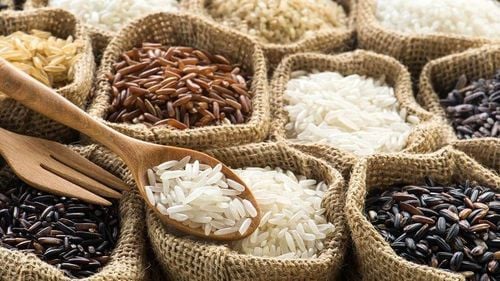
Gạo lứt chứa nhiều carbohydrate
10. Foods to avoid
In addition to learning what to eat to gain muscle, you should also limit the following:
Alcohol: Has a negative effect on your ability to build muscle and lose fat, especially if consumed in excess; Foods high in sugar: Provide many calories but few nutrients, including candy, cookies, donuts, ice cream, and sugary drinks (soda, sports drinks); Fried foods: Can promote inflammation and cause disease when consumed in excess. Examples include fried fish, chips, fried onion rings, chicken shakes and cheese sticks. In addition, certain foods can slow down digestion and cause stomach upset during exercise. So before going to the gym, you also need to avoid eating a lot:
Fatty foods: Fatty meat, butter and sauce or cream; High-fiber foods: Beans and broccoli or cauliflower. Carbonated drinks: Types of soda. A variety of protein supplements can help you gain lean muscle. However, it should also be combined with carbohydrates and fats to provide fuel for energy so that you can be strong enough for regular physical activity. The items in the muscle gain menu as listed above also contain many vitamins and minerals necessary for the body to develop comprehensively.
Not only famous for its modern facilities that are standard in the medical examination and treatment process, but at Vinmec International General Hospital, there is also a team of doctors and nurses ready to listen, advise and treat diseases. as well as advice on nutrition, good food for all ages according to the individual needs of customers.
Customers can directly go to Vinmec Health system nationwide to visit or contact the hotline here for support.
Reference source: healthline.com




